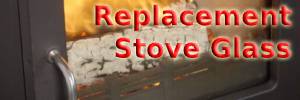Hundreds of new staff have joined the emergency care workforce ahead of winter - including as paramedics and call handlers – with warnings of significant pressure due to winter viruses over the next few months.
The numbers of both 999 and 111 call handlers are up on last December (8% and 5% respectively), meaning hundreds more staff in place to take urgent and emergency calls.
There are now 2,600 handlers taking 999 calls, up from 2,400 last December. Figures for October showed 999 received the highest number of calls than any month this year so far, with an average call answer time of nine seconds - five times faster than the average of 50 seconds last October.
The NHS 111 service now has 4,645 call handlers in place, up 207 (4.7%) on last December. Last year the NHS experienced incredibly high demand for NHS 111, partly driven by concerns from parents about symptoms of Strep A, with over 720,000 calls received in one week at the peak (w/e 19 Dec 2022).
The latest weekly figures show that thanks to the growth in 111 call handlers and other measures outlined in the NHS urgent and emergency care recovery plan, in the week ending 3 Dec the NHS 111 service answered almost twice the proportion of calls within a minute (from 36% to 67%) as the same week last year.
The NHS also recruited more than 1,700 additional paramedics and ambulance support staff between December 2022 and August 2023.
Ambulance trusts have recruited 290 extra paramedics over this period, with a total of 14,793 now delivering faster ambulance response times than this time last year despite record demand. In October, services saw their busiest month so far this year for Category 1 and 2 ambulance callouts.
Recruitment efforts have meant that 1,417 more support staff are in place, with a total of 39,743 now working in emergency services. Support staff provide a vital role, often assisting paramedics on callouts.
The increase in staff numbers come in the same year the NHS published its first ever Long Term Workforce Plan, which aims to retain up to 128,000 more staff over the next 15 years in addition to training record numbers of doctors, nurses and other healthcare professionals.
In preparation for winter, since October North West Ambulance Service (NWAS) has recruited an extra 70 paramedics and 37 more emergency medical technicians. The service has also worked hard to bring in 250 new 999 and 111 call handlers before the festive season, also increasing the number of clinicians working in its 999 contact centres.
NHS staff are already experiencing significant pressure with figures for the week ending 3 Dec showing an extra 1,200 patients in hospital compared to the same week last year, increases in winter viruses – particularly norovirus - and challenges discharging patients to settings such as social care.
Robust NHS plans for winter, set out earlier than ever before, have seen the nationwide rollout of care ‘traffic control’ centres, extra ambulances and beds and the rapid expansion use of the world-leading and innovative virtual ward programme, keeping patients out of hospitals and treating more people at home and in the community where appropriate.
NHS national medical director, Professor Sir Stephen Powis, said: “It is hugely welcome news that we have been able to recruit hundreds more emergency staff ahead of this winter, with over 1,700 more ambulance staff and significant increases in the number of 111 and 999 call handlers to help deal with record demand for services as we head into the busier winter months.
“The latest figures show hospitals are already under considerable strain, with over 95,000 beds occupied and hundreds of patients admitted with viruses, which is why it is so important we have more colleagues with their shoulder to the wheel to help treat as many patients as possible, as quickly as possible.
“Earlier this year we published the NHS Long Term Workforce Plan which aims to retain and train many more staff, and a career in the NHS, particularly working on the frontline and saving lives in our urgent and emergency care teams, is incredibly rewarding so if you are interested in joining you can find out more on our NHS careers website.”
Health Minister, Andrew Stephenson, said: “These hundreds of extra paramedics, call handlers and other emergency care staff are a vital boost to the NHS ahead of the busiest months. Alongside our Long Term Workforce Plan, we are building an NHS fit for the future.
“This is part of our robust winter plans which have already resulted in more ambulances on the roads, extra beds and the nationwide rollout of more than 10,000 virtual ward beds to treat people in the comfort of their own homes and reduce pressure on hospitals.”
Julie Liversidge joined NWAS as a call handler in July and says: “My sister-in law was already a call handler with the service and really inspired me to join.
“My colleagues are brilliant, and it really feels like I’m making a difference, and it is rewarding helping the public when they need help for themselves or their family.
“I have always wanted to help people and so this role was a great next step for me.”
Newly qualified paramedic, Joshua, recently graduated with a paramedicine degree and is starting his career at London Ambulance Service this month. He said: “I left school with no GCSEs after being diagnosed with severe dyslexia and am incredibly proud of the barriers I have overcome.
“I didn't want to be defined by my disability or school grades - I will always be defined by my actions - and I was determined to keep pushing for my dream career as a paramedic."
To find more information about signing up for NHS careers, entry requirements or to read first-hand experiences, more information is available on our [URL="https://www.healthcareers.nhs.uk/explore-roles/allied-health-professionals/roles-allied-health-professions/roles-
Issued by NHS England Thursday December 14th 2023.
|
|
||||||
Check Todays Deals on Ebay.co.uk Your Comments:
Custom Search

|
You are in:
UK /
Shrewsbury / West Midlands
Find any Town in the UK, or Use UK map Local Google MAP for Shrewsbury Check Todays Deals On Amazon.co.uk Check Todays Deals on Ebay.co.uk 


 Be Seen - Advertise on Qlocal Corporate Sponsors
Southport Piano and Music Academy Washroom Services Maximum Grounds Maintenance Southport Garden Services Ormskirk Garden Services Sanitary Bins Nappy Bins & Waste Disposal Confidential Shredding Services Legionella Risk Testing London Washroom Services Croydon Washroom Services Hounslow Washroom Services Wandsworth Washroom Services Havering Washroom Services Sanitary Bins London Clinical Waste London General Waste London Legionella Testing London Shredding London Tatoo Waste London Preston Bird Control Blackpool Bird Control
UK, Local Online News Community, Forums, Chats, For Sale, Classified, Offers, Vouchers, Events, Motors Sale, Property For Sale Rent, Jobs, Hotels, Taxi, Restaurants, Pubs, Clubs, Pictures, Sports, Charities, Lost Found
shrewsbury,
shrewsbury News,
|
|||||




 Reply With Quote
Reply With Quote